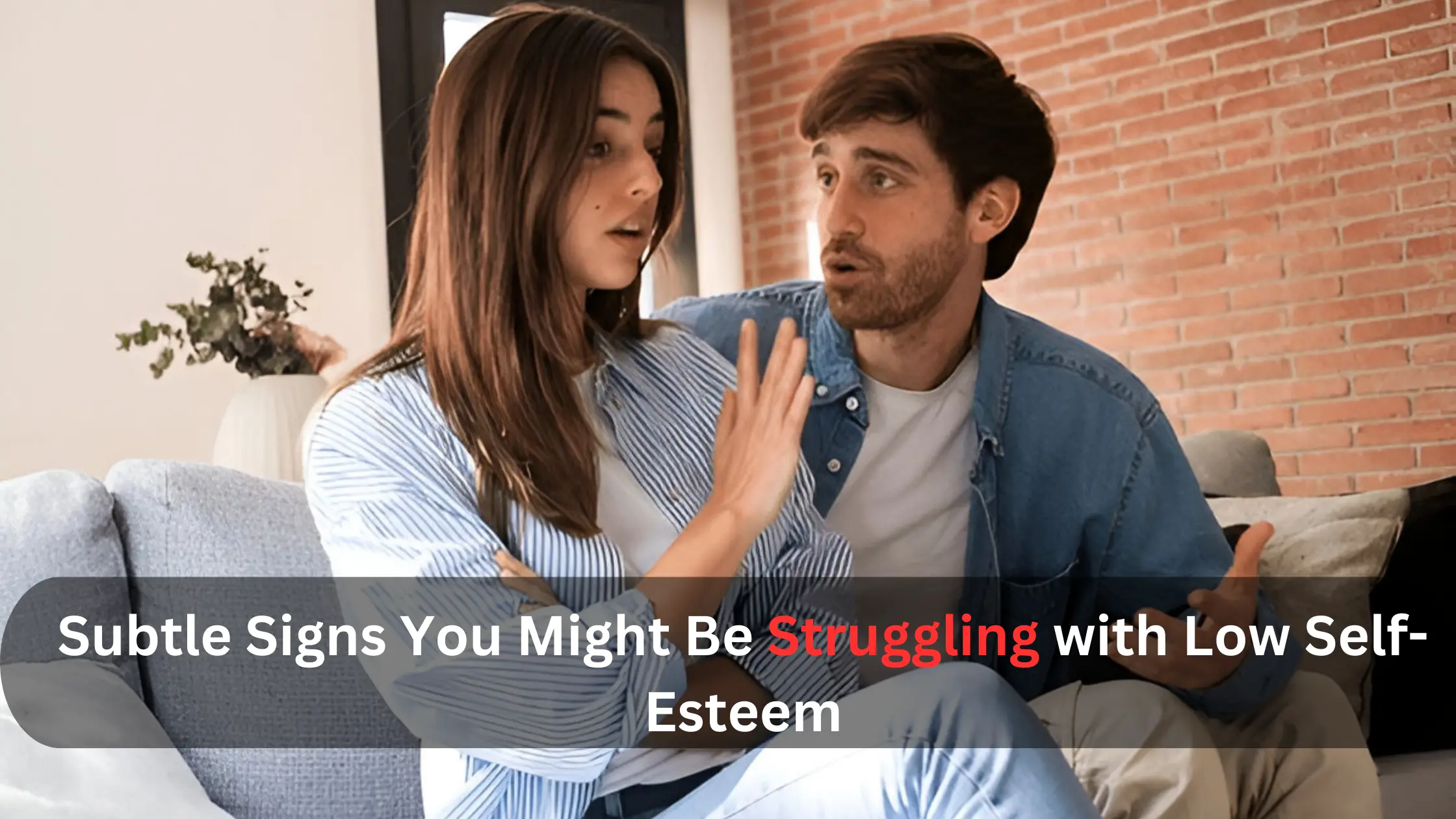Subtle Signs You Might Be Struggling with Low Self-Esteem

Struggling with Low Self-Esteem
Low self-esteem doesn’t always scream out loud — sometimes it hides behind habits, thoughts, and small behaviors that quietly hold you back. If you’ve ever felt like you’re not good enough, or constantly seek approval, it may be time to look inward.
In this guide, we’ll walk you through emotional, behavioral, and psychological signs that suggest you might be battling low self-worth — and offer ways to start building confidence again.
1. Emotional Signs of Low Confidence You Might Miss
You might feel unworthy of love, success, or happiness — even when there’s no real reason. If you experience frequent guilt, anxiety, or find it hard to accept praise, these could be emotional signs of low self-esteem.
Tip: Try writing down compliments and reading them daily to internalize positive feedback.
2. Common Habits of Insecure People
Low self-esteem often shows up as people-pleasing, avoiding attention, or comparing yourself to others. You may feel uncomfortable when you’re not being validated by others.
Watch for: Always putting others first or laughing off your achievements.
3. How Low Self-Esteem Affects Relationships
Relationships thrive on mutual respect and emotional security. But when you lack self-worth, you might tolerate toxic behavior, avoid communicating your needs, or become emotionally dependent.
Result: You settle for less than you deserve.
4. Behavioral Signs of Low Self-Worth in Daily Life
Do you apologize excessively? Say “yes” just to avoid conflict? These behaviors often come from a fear of rejection and the need to be liked.
Remember: Setting boundaries is a form of self-respect, not selfishness.
5. What Low Confidence Looks Like in Adults
In adulthood, low self-esteem can show up subtly — like avoiding eye contact, hesitating to speak up in meetings, or second-guessing your worth in your career or relationship.
Solution: Start small — speak up once a day and reward yourself for doing so.
6. How to Know If You Have Low Self-Esteem
If you feel stuck in life, have trouble making decisions, or constantly worry about being judged, you might be dealing with low self-esteem. Ask yourself: “Do I trust myself to make good choices?”
Try: Journaling your thoughts without judgment to spot negative patterns.
7. Psychological Effects of Self-Doubt
Constant self-doubt can spiral into overthinking, fear of failure, and even anxiety. You may find yourself over-preparing or avoiding action altogether.
Important: Action builds confidence. Perfectionism destroys it.
8. Early Signs You Don’t Value Yourself
You brush off praise, avoid celebrating your wins, or feel guilty taking time for yourself. These early signs signal deeper feelings of unworthiness.
Affirmation: I am worthy of care, success, and love — just as I am.
9. Poor Self-Image Symptoms in Your Thoughts & Words
Pay attention to how you talk to yourself. If your internal dialogue includes words like “I can’t,” “I’m not good enough,” or “I always fail,” these are red flags.
Challenge it: For every negative thought, replace it with one truth about your strengths.
10. Subtle Traits of People with Low Self-Esteem
This could include avoiding compliments, masking envy as sarcasm, or pretending not to care about things you secretly wish you had.
Hint: What you mock is often what you wish you could accept about yourself.
11. What Are the Behaviors of Someone With No Self-Confidence?
You might avoid new challenges, depend on others to make decisions, or become defensive when criticized. These patterns can limit personal growth.
Step forward: Try one uncomfortable thing this week — and reflect on the outcome.
12. How Low Self-Esteem Shows Up in Everyday Life
From hesitating to take credit at work to feeling invisible in social settings, low self-esteem can affect how you show up. It’s not about being shy — it’s about not believing your presence matters.
Reframe: Your voice and ideas have value, even when no one claps yet.
13. Signs of Insecurity You May Be Ignoring
Do you overachieve to compensate or shut down when things go wrong? These are deep-rooted signs of insecurity often tied to early life experiences or repeated criticism.
Healing tip: Start noticing your triggers, and respond with self-kindness.






